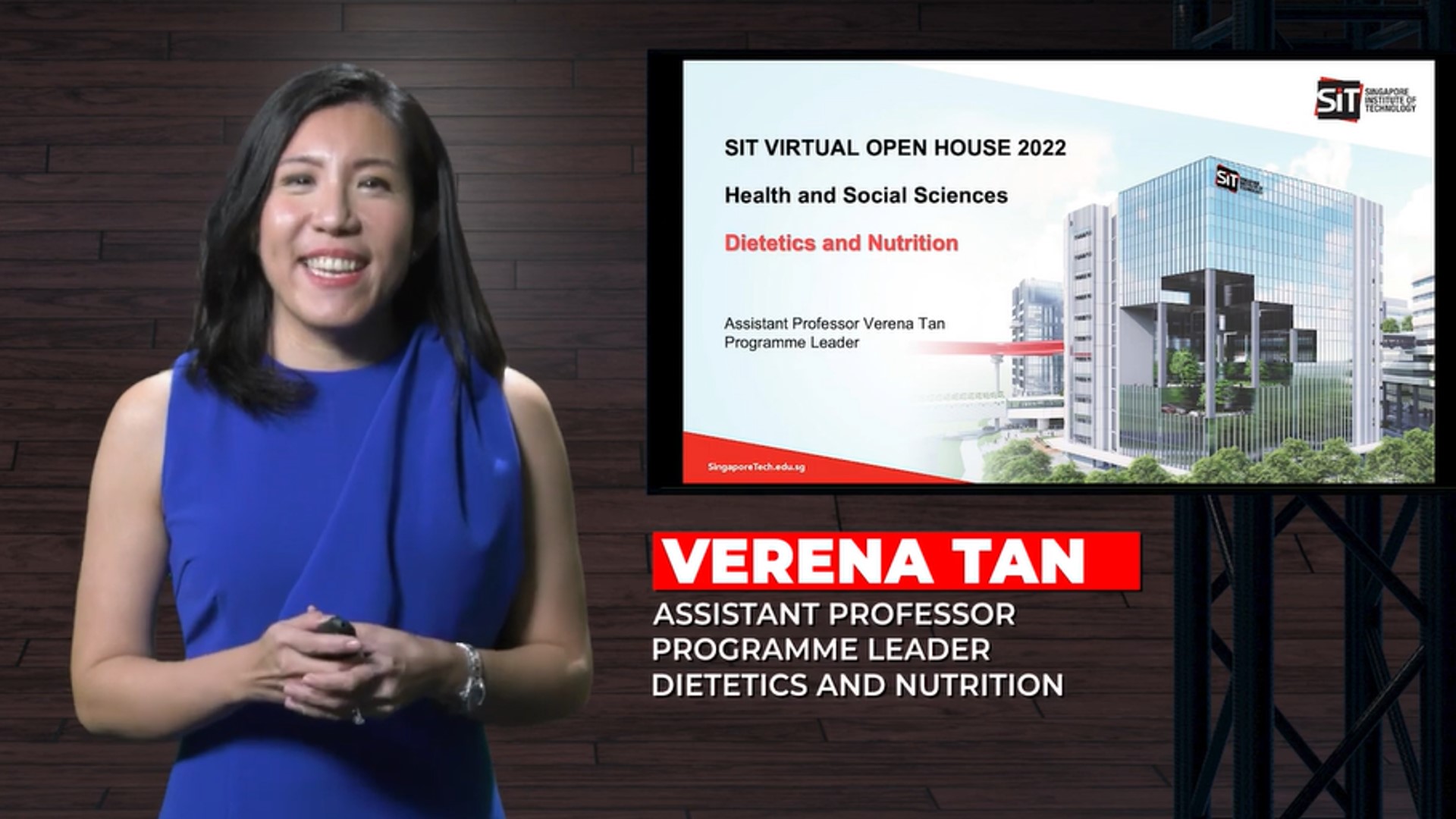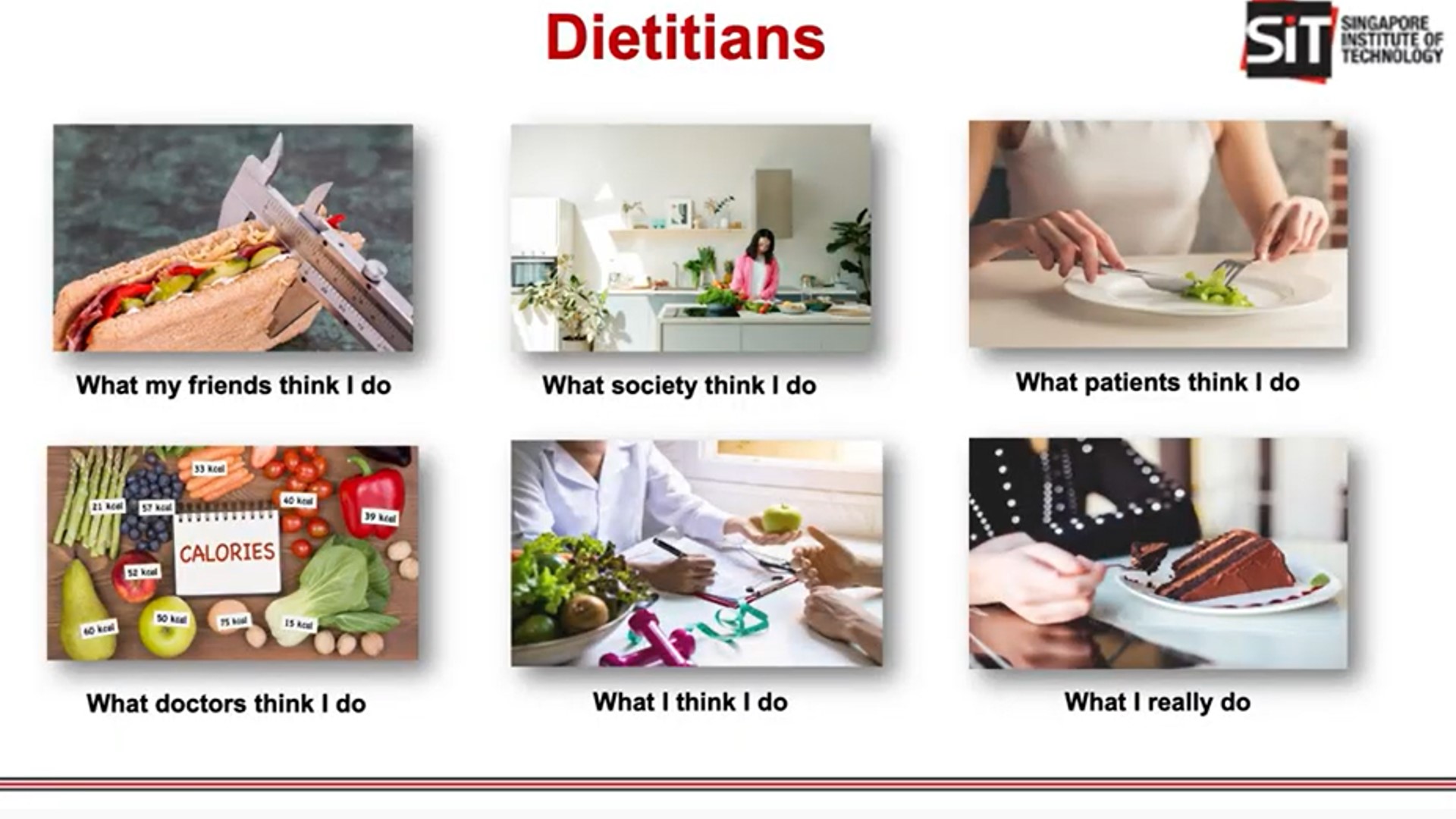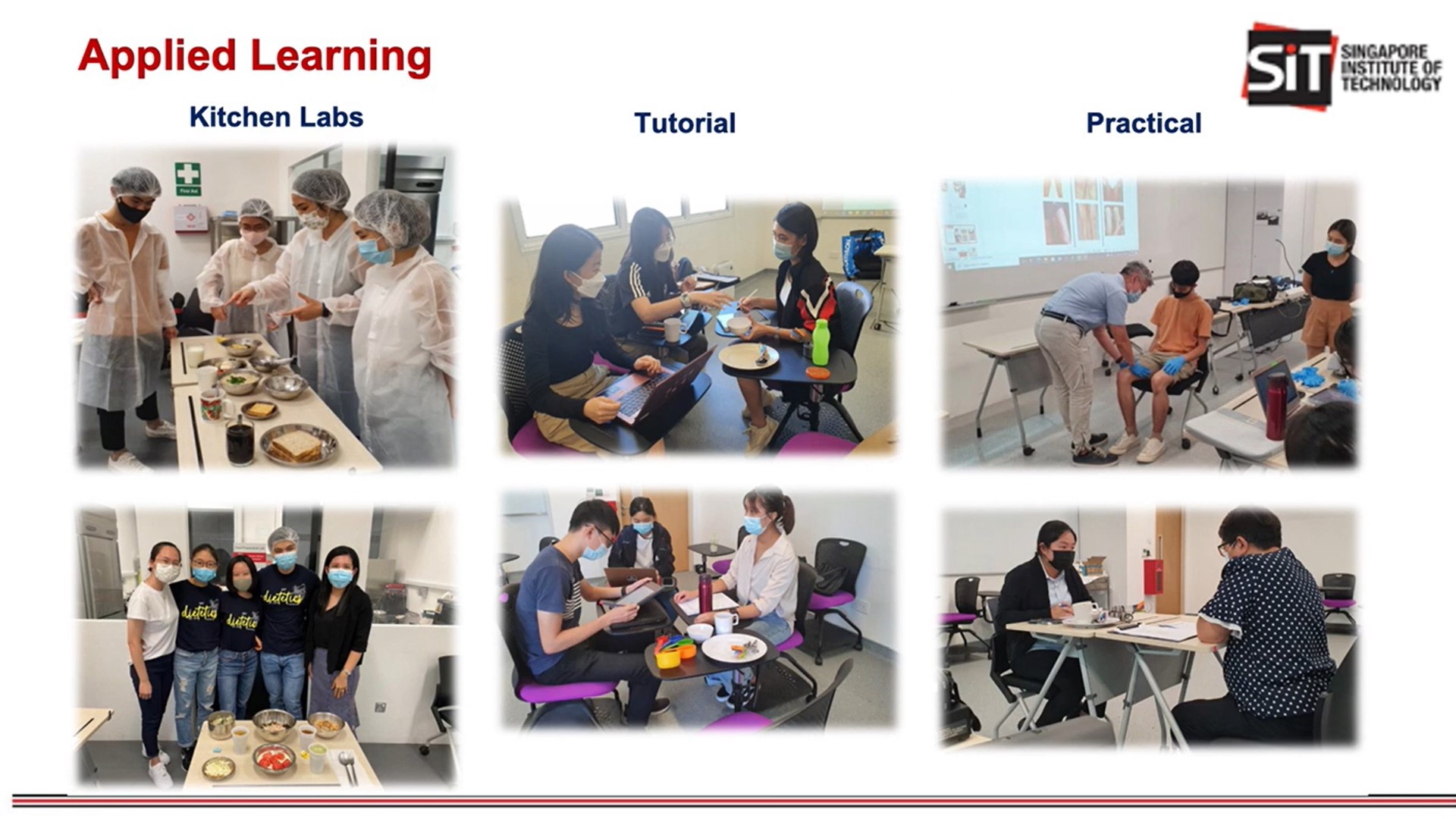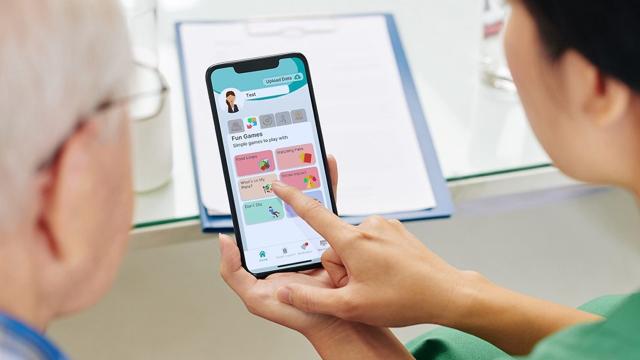SIT’s Virtual Open House 2022 featured a series of cool talks by faculty about the programmes offered by our academic clusters. Here are the highlights of what Assistant Professor Verena Tan shared about SIT’s Dietetics and Nutrition programme and her role as a dietitian.

Did you know that coffee offers protective benefits against cardiovascular disease and Alzheimer’s disease? Or that up to four to five cups of coffee a day can confer health benefits? In her talk, Assistant Professor (Asst Prof) Verena Tan, Programme Leader of Dietetics and Nutrition, shares what the role of a dietitian entails and how SIT’s Dietetics and Nutrition programme supports aspiring dietitians.
What people think dietitians do vs what dietitians really do

As a dietitian, Asst Prof Verena Tan manages the health and medical conditions of patients using evidence-based medical nutrition therapy. She often gets asked if she conducts cooking classes or helps patients count calories. In her talk, she shared the answers to some questions people ask her.
How is a dietitian different from a nutritionist?
Dietitians apply the scientific knowledge of human nutrition to maintain and promote the health of individuals in the community. We also manage and treat medical conditions, also known as medical nutrition therapy.
Do you eat salad all the time?
There is no doubt that plant-based diets are beneficial to our health! But as dietitians, we love food and don’t just eat salad. I still enjoy Korean fried chicken and chocolate cake from time to time.
Do dietitians only work in hospital settings?
In the past, dietitians primarily practiced in acute and community hospitals. But things have changed. The job scope of a dietitian has evolved over the years, so dietitians can work in private clinics, rehabilitation centres, nursing homes, food services, research, or teach at educational institutions.
How does SIT’s Dietetics and Nutrition programme train future dietitians?
The Dietetics and Nutrition programme at SIT prepares students to graduate as competent entry-level dietitians. In the first year, students will be exposed to common modules such as the health systems in Singapore, understand human nutrition basics, deep-dive into human eating behaviour and comprehend nutrition concepts throughout the lifespan.
Moving on to year 2, students would have to tackle more specialised topics on nutritional assessment, nutrition health and disease, as well as research methods and statistics. Students will also take on their first clinical practice education in a food service institution.
In year 3, students will undergo training in medical nutrition therapy communication to help them interact with patients. The students will continue their placements in community and public health nutrition and in clinical settings.
Finally in year 4, students can conclude their final clinical placement block and complete an honours thesis together with some elective modules.
What’s unique about the programme?
A unique feature of the SIT Dietetics and Nutrition programme is the clinical placement education (CPE) in various settings and institutions. Students embark on their clinical placements from year 2 onwards. There are a total of 4 blocks of placements for this programme – food services, community and public health, clinical I and clinical II.
Applied Learning at SIT

Students are exposed to hands-on kitchen labs, tutorials, and practical sessions.
SIT’s applied learning approach enables students to apply theoretical knowledge through hands-on cooking experience in kitchen labs where they will plan and cook therapeutic diets for certain medical conditions. Some of the healthy recipes produced by students in the programme can be found on our Instagram page: @sit.dtn.
Students are also exposed to plenty of small group tutorials and work collaboratively on case studies. We also invite associate faculty who are experienced dietitians in the hospitals to impart their clinical knowledge to students in practical sessions.
If you want to learn more about the Dietetics and Nutrition programme and be part of this meaningful profession, watch the talk by Asst Prof Verena Tan here.
Article contributed by Jasmine Koh Wen Hui, Year 3, Physiotherapy
![[FA] SIT One SITizen Alumni Initiative_Web banner_1244px x 688px.jpg](/sites/default/files/2024-12/%5BFA%5D%20%20SIT%20One%20SITizen%20Alumni%20Initiative_Web%20banner_1244px%20x%20688px.jpg)


